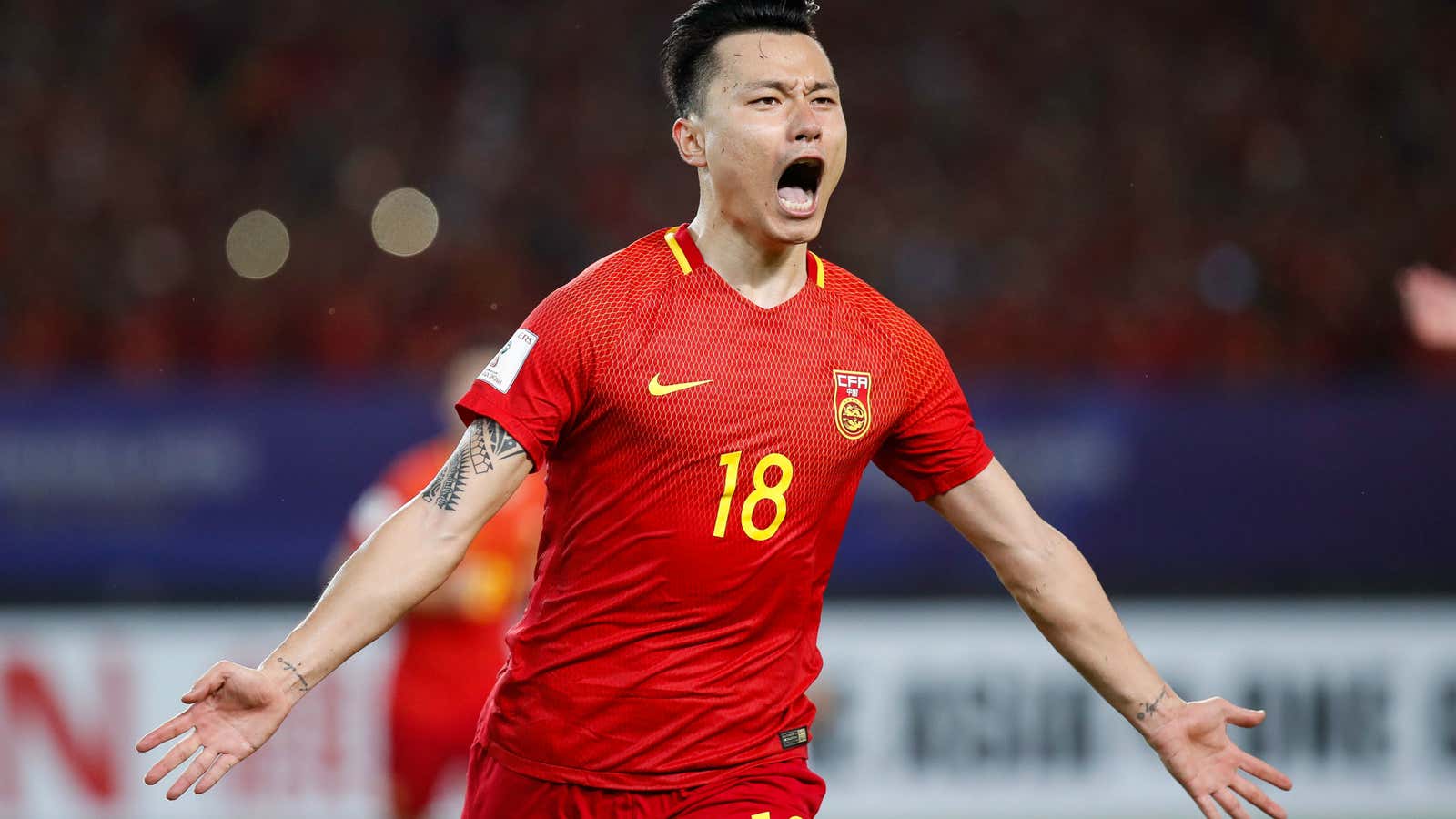Chinese president Xi Jinping, a soccer fanatic, has big plans for his country’s underperforming national team. Though China didn’t qualify for the 2018 World Cup—it has only made the cut for the tournament once, in 2002—the country aims to become a member of global soccer’s “elite” by 2050. According to a plan released in 2016, the country will transform into a “top class soccer nation” via investing in training, building thousands of new stadiums, and dramatically increasing the number of young people playing the game.
Can Xi’s “World Cup dreams” come true? A recently released study has the answer: maybe.
The economist Stefan Szymanski thinks sports offer a useful prism for answering the most important economic questions—he is a coauthor of the bestseller Soccernomics. Unlike most industries, says the University of Michigan economist, data on the inputs and outputs of sports teams are relatively easy to collect. “That makes it a great laboratory for answering questions about what accounts for why countries and businesses succeed,” he explains.
Szymanski’s new paper, coauthored with fellow economist Melanie Krause, examines international soccer competitions in the context of the economic theory of convergence. Convergence is the idea that since poor countries can copy the business practices and policies of rich ones, they should grow faster than rich ones and, eventually, catch up to them. In other words, Bangladesh can gain by mimicking Sweden.
Krause and Szymanski’s main finding is good news for China. Convergence is happening in global soccer. Using data on international soccer matches from 1950 to 2014, they find that weaker teams are getting better everywhere.
They think this is mostly a result of globalization. Weak national teams can study the tactics of the best squads, bring in coaches with the latest training techniques from around the world, and encourage players to join clubs in stronger foreign leagues to hone their skills. A growing population and economy also help, so China should get better at soccer even without a surge in investment.
The researchers’ secondary finding is less encouraging for China. Historically weak teams from Europe and Latin America account for most of the convergence in world soccer; teams from Asia, North America, and Africa have not improved as quickly. Krause and Szymanski say that this is similar to the impact of regional integration on economic growth. Most nations trade more with countries near them and, similarly, national soccer teams compete most often with others in their regional confederation.
The researchers believe that just as Poland benefits economically from its proximity to high-productivity countries like Germany and France, Poland’s soccer players also benefit from regularly taking on Germany and France in competition. China doesn’t get the same opportunities: Taking on Japan and South Korea is not the same as facing Italy and Spain.
The researchers’ third finding is really bad news for China. Only eight countries have ever won the World Cup, and all of them are from either Europe or South America. Krause and Szymanski think the difficulty of breaking into soccer’s elite is analogous to the “middle-income trap” in economics. This refers to the inability of rapidly growing economies to keep it up long enough to become high-income countries—Argentina and Indonesia are good examples. The theory is that it is easy to catch up by copying manufacturing practices, but the gains from imitation only go so far.
“We think the same is happening in soccer,” says Szymanski. He continues:
When most countries got started, they would sometimes lose 10-0… It turned out not losing 10-0 wasn’t that difficult. By organizing the defense, copying some of the basic skills, and improving fitness, they could even occasionally win games against much stronger teams. But once you have reached that basic level, then it becomes more difficult to improve.
Szymanski has written that China’s sporting culture may be too rigid and formal for it to become a true soccer power. (He thinks the US has the same problem.) China has been hugely successful at creating Olympic champions, but developing top soccer talent requires embracing creativity, improvisation, and individualism. He wonders whether that is possible in authoritarian China.
One way China could improve its odds of soccer success is to import great players. Chinese Super League teams have made some major investments in foreign players, spending huge amounts to bring over Brazilian stars like Hulk and Oscar. By competing with these players, Chinese national team members—all of whom play in the domestic league—will improve. Szymanski says the quality of the England squad is a result of the influx of foreign stars to England’s top domestic league. The current crop of English players were able to learn from, and compete with, the world’s best talent.
China recently changed the rules of the Super League to incentivize teams to invest more in local player development, and less on foreigners. Szymanski thinks this is a mistake, and he is probably right.
